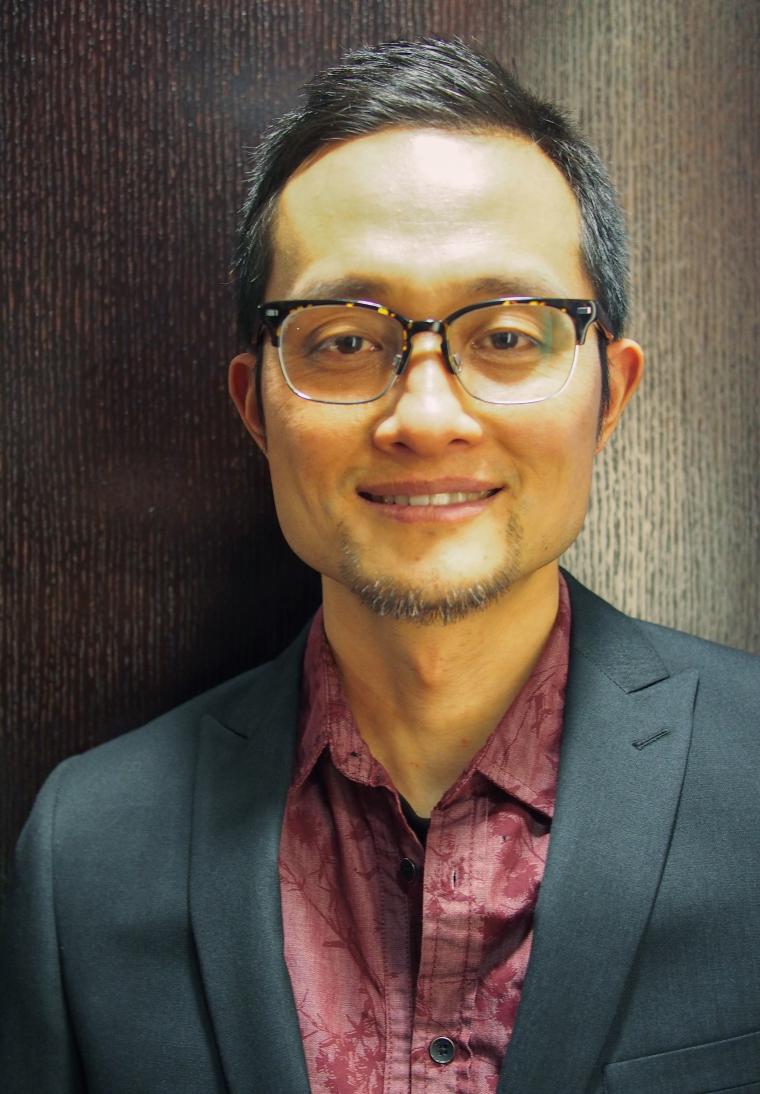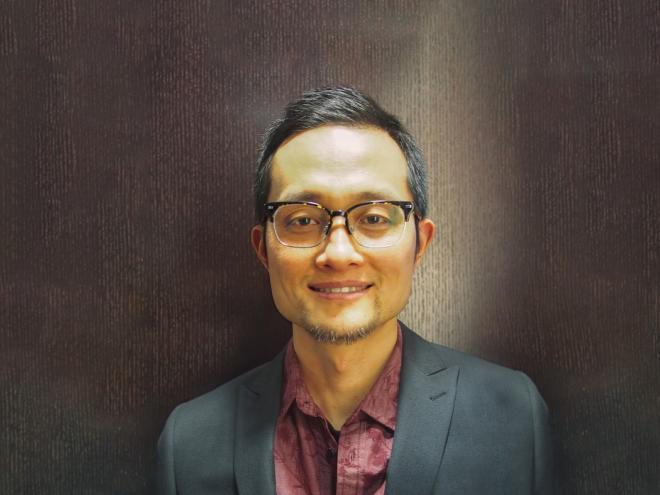Ask Dr Jiwei Li why he loves family medicine, the Vancouver physician gets to the heart of the matter.
 “The human element is a critical part of helping patients,” says Dr Li. “Family doctors are at a unique intersection to help meet the social and medical needs of patients, which is the key to equity in ensuring that everyone in our community gets the care they need. We can’t do this important work without building relationships and connecting to our patients’ stories.”
“The human element is a critical part of helping patients,” says Dr Li. “Family doctors are at a unique intersection to help meet the social and medical needs of patients, which is the key to equity in ensuring that everyone in our community gets the care they need. We can’t do this important work without building relationships and connecting to our patients’ stories.”
He cites the example early in his career of a long-time patient who was on a lot of medication to ease her anxiety and chronic pain. Dr Li spoke with her, and helped her to apply for more accessible food through the Quest program and for CPP disability assistance. Six months later she told him she felt less anxiety and pain, and she became a great conversationalist. He realized this was because her income had almost doubled, she was eating well and getting her basic needs met. It is just one example of how looking at medicine from a whole person perspective can make a big difference.
“Everyone deserves to have access to quality care – not just care,” adds Dr Li. “Everyone should have the opportunity to live a healthy life. However, many face barriers that keep them from achieving their best health. By paying attention to the upstream causes of health, by showing empathy and thinking creatively to offer solutions, doctors can truly have an impact on their patients’ lives.”
Dr Li’s interest in social determinants of health grew from his work at South and REACH Community Health Centres in Vancouver, where he saw significant health outcome disparities. In particular, he found new Canadians and the elderly with significant under-addressed social and medical needs. He is challenged by the call from Donald Berwick of the Institute for Healthcare Improvement on the need to advocate for policy changes such as universal pharmacare coverage while collaborating with community organizations in the areas of housing and food security. Like Berwick, Dr Li believes it is important to create common goals and to approach the work of addressing health inequities just like any healthcare improvement project. He has also found working together with social workers, counselors, and nurses can address the various needs of patients and make it easier for patients to be healthy.
Making change at the patient level and in the bigger health care system
Dr Li’s view of the physician who functions at the intersection of social and medical needs, as well as his optimism for supporting the health of individuals at a system level, prompted him to apply for a position with the Shared Care Committee.
We asked Dr Li to speak about his decision to join Shared Care and his experience with the committee.
Why did you decide get involved in a committee at Doctors of BC?
It is about stitching and weaving the narrative together. I would feel stressed and have ideas on how medicine can be improved, but I felt frustrated that I could not do anything about it. At Shared Care, I am part of a group that is making change at both the patient level and in the bigger health care system. I also see a lack of diversity in representation in medicine. It is good to have a diverse voice, so I feel I am able to contribute in that way too.
Why the Shared Care Committee?
Shared Care is an amazing link to support the work of family doctors and specialists. We fund a lot of projects to support innovation at the ground level and the policy work that is so important for system change. How do these projects fit within the primary care networks that are being developed? How can they get us make things better in the big picture? How to get to a place of more equity so that the vulnerable are able to get not just care, but quality care?
What is the committee doing that’s particularly exciting?
We do a lot of amazing things. We fund a lot of projects that are about local innovation, that help to foster a better connection between family doctors and specialists. We also support programs that address the challenges relating to the social determinants of health.
The best part is when doctors bring their projects back and we hear what they have accomplished. Recently, an elderly woman came to share her story of how a local physician’s project had created a health hub - the Augustine House Heath Hub in Delta - here she felt her life really improved because of better relationship building between family doctors and the community integrated services where she lived. She was filled with joy and reminded me of the people in a seniors home where I volunteered 25 years ago. It’s very inspiring.
How does Shared Care promote innovation?
It is like watering the plant. There is so much potential for innovation and Shared Care is about fostering that. Doctors often work in silos and the question becomes, “how do we get people to work together, to innovative together?” Our work is about sparking innovation and germinating the ideas to allow them to grow.
Do you have advice for doctors who may be thinking about joining a Joint Collaborative Committee or Doctors of BC committee, but aren’t sure?
We just really need everybody’s ideas. Physicians have a significant role to play in shaping healthcare delivery. Doctors at all stages in their careers have so many ideas about how to make a difference. What we are doing has a very real impact on the day-to-day care we provide our patients. Also, it is a very respectful environment. There’ s a lot of congeniality and support. I thought it would be a very formal environment, with a lot of pressure, but that isn’t the case.
I would also say don’t underestimate yourself. This is about moving beyond the granular level of care to integrate that with big-picture change. Having the opportunity to learn from each other and work with each other to make real change – it is a fantastic experience.
If you are interested in joining a Doctors of BC committee, check out our committee openings web page which is regularly updated.
Do you know a doctor who is making a difference?
